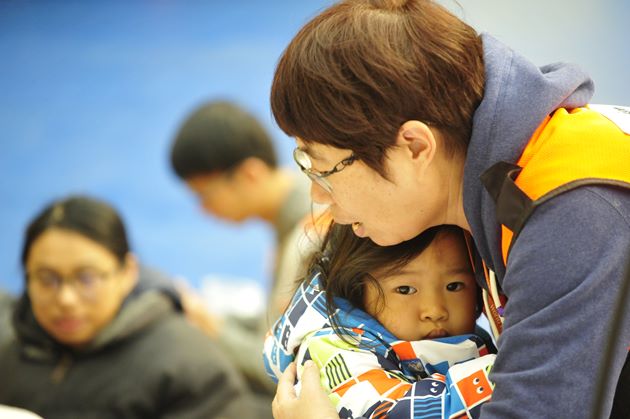Money Can’t Buy Fair and Efficient Healthcare

Source:Kuo-Tai Liu
The average life expectancy of any modern nation is a reflection of its social development. When you compare life expectancy and total health expenditure per capita across multiple nations, you come to the conclusion that imbalances in healthcare resource distribution are more lethal than you think.
Views
Money Can’t Buy Fair and Efficient Healthcare
By Yun-han ChuFrom CommonWealth Magazine (vol. 662 )
The average life expectancy of any modern nation is a reflection of its social development. When you compare life expectancy and total health expenditure per capita across multiple nations, you come to the conclusion that imbalances in healthcare resource distribution are more lethal than you think.
Traditionally, the development of nations was measured by average income. But in fact average life expectancy is a much better yardstick.
Average life expectancy is influenced by material wealth, living conditions, and social governance. It shows if a nation is capable of providing food and energy; healthcare necessities such as sanitation and vaccines; clean air, water, and environment; protection against natural or manmade disasters; control over crime and violence.
Our understanding of the world changes when you measure humanity’s progress with life expectancy. We’ve made astonishing strides in the past couple centuries. In the 1800s, the life expectancy of the entire human race was just 29 years.
By the 1950s, we’ve extended it to 46 years, but with wide variances across the globe. On average, people in developed Western nations lived to be 66. In China they lived to be 43; in India, only 35.
In 2015, the average life expectancy of the entire world was an unprecedented 71 years. Only a few African nations had a life expectancy of less than 60. Mainland China had an average of 76 years, not far behind the United States’ 79, which showed how quickly China caught up with the world in the 70 years after the Second World War
There’s no direct correlation between average income, average life expectancy, and total health expenditure per capita. The gap between China’s and the United States’ life expectancies in 2017 was less than 2 years. But China’s average income was less than a quarter of what the Americans made, and total health expenditure per capita was only 6% of China’s GDP, compared to 18% in the U.S.
What does all this mean? It means the Chinese were able to reach comparable healthcare results while spending less than 10% of what the Americans spent. It means American healthcare costs are badly inflated. Their system is rife with corruption, mismanagement, and futile medical care. (Read: WHO: Healthcare Costs are Pushing Millions into Extreme Poverty)
There is inequality in the distribution of healthcare resources between the rich and poor. It’s also a grim reminder for economists who advocate for introducing “market mechanism” into the Chinese healthcare system.
Hong Kong has the highest average life expectancy in all of Asia. Hong Kong is very much a capitalist society, but they have a socialist healthcare system that provides public healthcare for all. Most of their hospitals are public hospitals, staffed by doctors and nurses who are in effect highly paid civil servants. Everyone gets healthcare that is almost free.
The downside to this is the long waiting times in non-emergency cases. Surgeries or special physical examinations are doled out according to severity of illness. Rich people with no patience for delays are free to pay exorbitant prices and visit private clinics. Precisely because of this, unnecessary prescriptions, examinations, and operations are rare in Hong Kong.
In other words, spending healthcare resources where they’re needed most may be the best way to improve a nation’s overall health.
(Read: National Health Insurance Pushes Taiwan’s Hospitals to Seek Revenue Outside from Healthcare)
Translated by Jack C.
Edited by Tomas Lin







